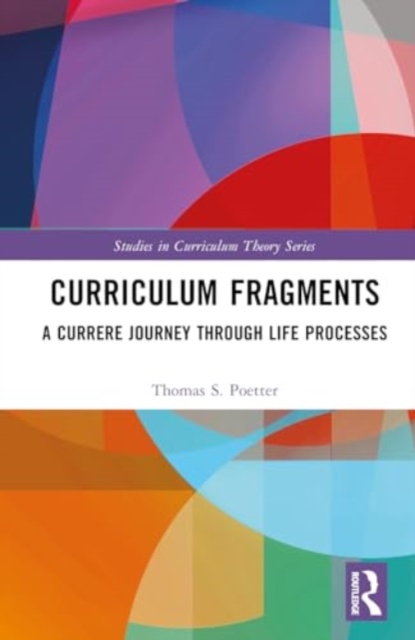
Curriculum Fragments : A Currere Journey through Life Processes Hardback
by Thomas S. (Trinity University With) Poetter
Part of the Studies in Curriculum Theory Series series
Hardback
Description
This book builds upon Louise Berman’s late 20th century framing of life processes to inform school curriculum, by proposing a new curriculum project that extends and reframes Berman in and beyond schooling. Using the well-established curriculum theorizing method, currere, the author focuses on seven life processes, including knowing, loving, losing, growing, forgiving, relating, and hoping.
Each of these is approached using currere-oriented, autobiographical fragments – stories from the author’s own lived experiences in education and life – that illuminate the educational, curricular, and pedagogical possibilities of each of the seven processes using past, present, and future perspectives, which the author calls curriculum fragments.
These curriculum fragments are tied to historical and contemporary curriculum theorizing and educational theory and practice, in order to suggest considerations for movement for the reader, scholar, educator, and leader.
It ultimately asks whether humanity can create a joyful, beautiful, and just curriculum of life for each and every person through schooling and beyond, and consequently, a better world built on love. Focusing on real life experiences in school and life that have educational implications and that can inform the curriculum, the field of curriculum studies, and the act of curriculum theorizing, this book will appeal to curriculum scholars interested in using currere, understanding patterns of use, participating in the production of curriculum and educational knowledge in the field, and perceiving and using curriculum theorizing as an integral part of their daily work.
Information
-
Pre-Order
- Format:Hardback
- Pages:200 pages
- Publisher:Taylor & Francis Ltd
- Publication Date:12/07/2024
- Category:
- ISBN:9781032595771
Information
-
Pre-Order
- Format:Hardback
- Pages:200 pages
- Publisher:Taylor & Francis Ltd
- Publication Date:12/07/2024
- Category:
- ISBN:9781032595771










